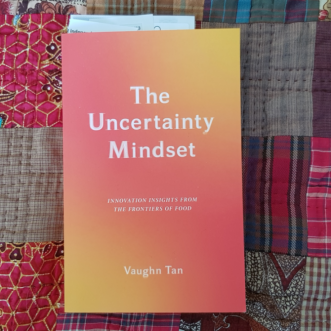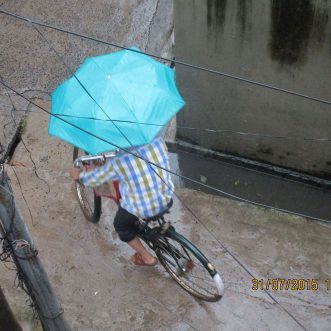
Rigidity is the wrong tool for dealing with uncertainty
When your business is faced with uncertainty, rigidity is the wrong tool to use. That’s why big corporations fail in the face of change.
The challenge for a purpose-driven, legacy-focused, customer-centred small business is to be open to unknown futures without losing its identity. To keep their edges fluid and their core firm.
Fortunately, that’s relatively easy to do, because human beings are very good at dealing with uncertainty – especially the uncertainty that comes from dealing with other human beings.
All you need to do is to build the firm core:
First you define a high-level, comprehensive Promise of Value that is specific and distinctive, yet open-ended:
- Define the people you serve in terms of psychographics, not demographics.
- Define how you serve them in terms of their deeper needs, not passing wants.
- Define how you achieve that in terms of values and behaviours, not external measures.
Package that Promise of Value into concrete products and services:
- Identify the demographic(s) most likely to contain enough people of the right psychographic.
- Understand what matters to them right now.
- Identify what dis-ables the motivated.
- Design a package that addresses what these people need right now.
Use that Promise of Value to drive the design of a Customer Experience Score for sharing and delivering on your Promise that:
- Embodies your distinctive values and behaviours.
- Can be played by any competent musician.
- Enables each musician to bring their own experience and personality to their performance.
- Allows them to create a new interpretation of your Promise when they encounter the new and unexpected.
Make sure you gather feedback:
- From the Score as it is being played.
- From the people you seek to serve and the people who work with you.
- From your regulator if you have one, and your industry.
- From the impact you makes on the people and planet around you.
Enable every player in your team to discover the combination of roles that ensures their best performances:
- Make sure everyone can play the whole Score.
- Give them regular R&D time, in the company of fellow players, to tweak or re-design the Score, in response to feedback, learning each other’s strengths as they go.
Once you have this in place, you can safely trust your people (and the people to come) to dance with uncertainty. You can make every one of them a Boss, and leave the future of your business safe in their hands.
Discipline makes Daring possible









